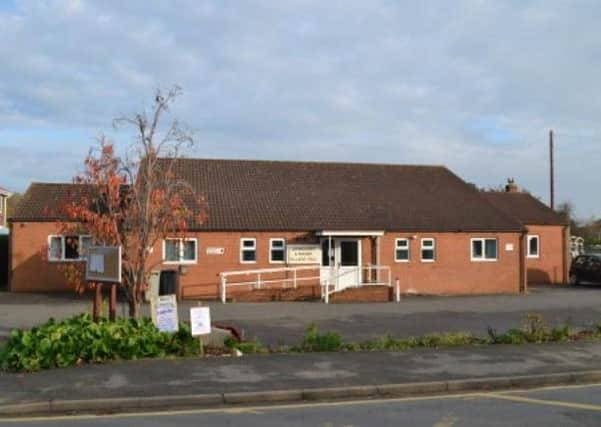Woman '˜was refused defibrillator access codes' during incident


Jessica Smith was visiting the Co-op in Manby Middlegate earlier this month when a woman collapsed through illness inside the shop.
While somebody else at the scene called an ambulance, Jessica rushed around the corner to the Grimoldby & Manby Village Hall, where the nearest defibrillator is based.
Advertisement
Hide AdAdvertisement
Hide AdJessica said: “The instructions on the defibrillator said to call 999, but when I asked for the access code the person on the phone said he couldn’t help me with that - he could only put me through to the police, fire, or ambulance.
“Then he said ‘Are you going to put the phone down, or am I?’, and then hung up.
“I just want to make people aware. This was an emergency and could have been the difference between life and death.”
A spokesman for the East Midlands Ambulance Service confirmed that a call had been received at around 4.25pm on September 3, and that an ambulance had gone to the scene to attend a patient who had been sick and was experiencing chest pain.
Advertisement
Hide AdAdvertisement
Hide AdThe spokesman said: “We sent a double crewed ambulance. The patient refused to travel to hospital and was left at the scene.”
The spokesman continued: “The reason why defibrillators have on them to call 999 is so that people don’t automatically just go and get the defib; an ambulance needs to be on the way to be able to provide advanced life support.
“As you can imagine, sometimes in these situations people panic and may forget to call for an ambulance - that sign is there as a reminder, as you cannot get into the cabinet without the code.”
However, the spokesman added that the first person a caller gets through to is a BT operator, and the caller should always ask for the ambulance service first if they require access codes for a defibrillator.
Advertisement
Hide AdAdvertisement
Hide AdThey added: “It seems that somebody has called an ambulance for the patient, Jessica has then gone across the road, has arrived at the defibrillator and realised you need a code, and has called 999 but hasn’t requested ambulance at the BT operator point.”
A BT spokesman said: “BT is proud of its role in the 999 service, handling around 2.5 million emergency calls across the UK every month.
“We are aware that some defibrillators do not have clear instructions on how to access the codes.
“Typically, the caller should dial 999 and also ask for an ambulance.
“BT operators do not have access to these codes, but we have taken steps and to ensure greater awareness of such codes and the need to transfer these calls to the appropriate ambulance service.”